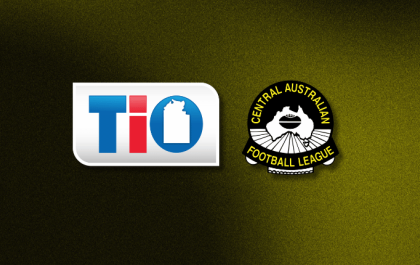Heading into the last rounds of the TIO NTFL season and finals, AFL Northern Territory (AFLNT) remains committed to building a safe, welcoming and inclusive environment for all people involved in Australian Football.
We would like to take this opportunity to remind all players, officials and spectators of the National Vilification and Discrimination Policy that our competitions and leagues are governed by.
If a player, coach, official or spectator witnesses any form of vilification or discrimination during a match or official AFLNT-sanctioned event then AFLNT has a clear process in place to deal with reported incidents.
If an incident of vilification or discrimination occurs then according to the AFL’s National Vilification and Discrimination Policy, which can be found online here, the following steps are available to players, officials or fans associated with a particular club.
- A complaint with accompanying detail should be directed to your club’s complaints officer – this should be done ASAP as the complaints officer will then need to refer it to the AFLNT Complaints Officer.
- AFLNT must receive a complaint via the club’s complaints officer by close of business two business days after the alleged incident occurred.
If you are a spectator not aligned to a particular club and witness an incident, then your first option is to report it to security, a match manager or via the anti-social mobile number which is available at some grounds and advertised as such.
If the matter is unable to be dealt with there and then and you still wish to make a complaint, then details of the alleged incident should be referred to the AFLNT Complaints Officer within two business days via AFLNT.Football@afl.com.au.
Should your issue relate to an on-field incident, then the club involved (alleged to have been the ‘victim’) will need to determine if they wish to pursue the matter further.
Upon receiving any complaint relating to racial vilification or discrimination, AFLNT follows the process as outlined in the national policy;
- A conciliation process will begin, with the person alleged to have contravened the policy informed of the complaint by AFLNT, who will provide that person with an opportunity to respond. The person’s Club President or CEO will also be informed that a complaint has been received.
- The AFLNT Complaints Officer will then:
(a) obtain statements from any witnesses identified by the parties to the complaint;
(b) obtain any other relevant evidence;
(c) make available to both parties any witness statements or any other evidence obtained in the course of conciliating a complaint, with an opportunity to comment;
(d) appoint a conciliator to conciliate the complaint; and
(e) ensure all steps necessary for the complaint to be conciliated are taken within 10 working days from the day the prohibited conduct is alleged to have occurred.
There is no set penalty or guideline as to what the parties in conciliation will agree to, but common outcomes include a letter of apology, a club-imposed match suspension and the offending party undertaking education/community activities.
A club official must accompany participants subject to conciliation who are under 18 years of age.
A failed conciliation process may then lead to an investigation or be referred on to an independent Tribunal, which has the power to impose match suspensions, fines and other penalties.
It is also the role of the AFLNT Complaints Officer to ensure confidentiality is maintained during the complaints process, which includes any outcomes pertaining to the complaints process.
AFLNT CEO Stuart Totham said though the process was often silent it demonstrated vilification in any form would not be accepted at the footy.
“Australian Rules football is an inclusive game, and we are proud of the rich cultural diversity in the NTFL and other competitions across the Territory. I love going to the footy and want to make sure everyone else has the opportunity to enjoy it as much as me,” he said.
“We will not stand by and let unacceptable behaviour occur from anyone involved in our game; we have a zero-tolerance policy.
“The message is clear - if you witness any sort of vilification occurring at the football make sure to report it, and we will follow the process so that offenders will be held accountable for their actions.”


